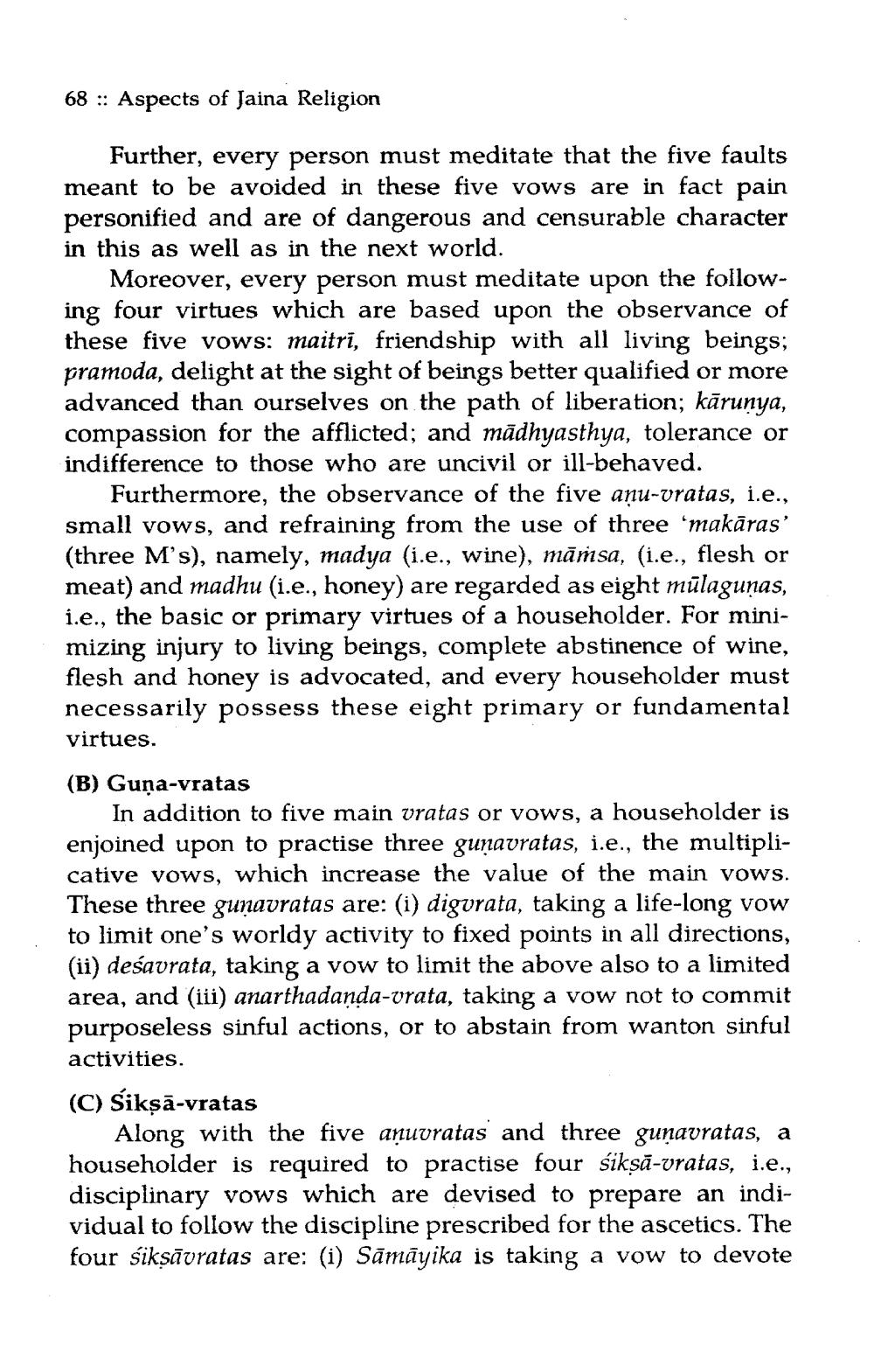________________
68 :: Aspects of Jaina Religion
Further, every person must meditate that the five faults meant to be avoided in these five vows are in fact pain personified and are of dangerous and censurable character in this as well as in the next world.
Moreover, every person must meditate upon the following four virtues which are based upon the observance of these five vows: maitri, friendship with all living beings; pramoda, delight at the sight of beings better qualified or more advanced than ourselves on the path of liberation; kārunya, compassion for the afflicted; and mādhyasthya, tolerance or indifference to those who are uncivil or ill-behaved.
Furthermore, the observance of the five anu-vratas, i.e., small vows, and refraining from the use of three 'makāras' (three M's), namely, madya (i.e., wine), māṁsa, (i.e., flesh or meat) and madhu (i.e., honey) are regarded as eight mūlagunas, i.e., the basic or primary virtues of a householder. For minimizing injury to living beings, complete abstinence of wine, flesh and honey is advocated, and every householder must necessarily possess these eight primary or fundamental virtues. (B) Guņa-vratas
In addition to five main vratas or vows, a householder is enjoined upon to practise three gunavratas, i.e., the multiplicative vows, which increase the value of the main vows. These three gunavratas are: (i) digvrata, taking a life-long vow to limit one's worldy activity to fixed points in all directions, (ii) deśavrata, taking a vow to limit the above also to a limited area, and (iii) anarthadanda-vrata, taking a vow not to commit purposeless sinful actions, or to abstain from wanton sinful activities. (C) Sikşā-vratas
Along with the five anuvratas and three gunavratas, a householder is required to practise four siksā-vratas, i.e., disciplinary vows which are devised to prepare an individual to follow the discipline prescribed for the ascetics. The four siksāvratas are: (i) Sāmāyika is taking a vow to devote




